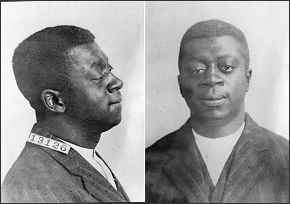Robert Ovetz
Fighting Racism & the Bosses
a review of

Ben Fletcher: The Life and Times of a Black Wobbly by Peter Cole. PM Press, 2021
One of the hardest tasks for an historian of the working class is telling the story of the organizer whose greatest talent is organizing their fellow workers while remaining anonymous. If not for historian Peter Cole’s book, Ben Fletcher: The Life and Times of a Black Wobbly, Fletcher might still be unknown to us today.
Cole’s combined biography and archival collection about Fletcher tells the extraordinary story about the man the Department of Justice once claimed made his union “so strong it practically controlled all shipping on the Atlantic Coast.”
Ben Fletcher’s story is told in a gripping and accessible 62-page biography that leaves out references or footnotes in order to keep the language accessible to a wide audience.
This compelling story of Fletcher’s life is drawn from the entirety of what is known about the Wobbly organizer from the admittedly fragmentary primary documents in the last two-thirds of the book.
Considered one of the most effective black militants of the early 20th century, Fletcher became a leader of the legendary Industrial Workers of the World (IWW) longshoremen Local 8, a racially integrated union with a large plurality of black workers in Philadelphia.
Although its role as the largest and most influential local of the IWW lasted only a few years, it became a model for revolutionary industrial unionism that is still unmatched even today.
Its multi-racial leadership and membership was so effectively organized that it extracted exceptional concessions from the shipping companies such as a hiring hall—two decades before Harry Bridges and the ILWU achieved it in 1934—and a union shop by striking on the job. By refusing to sign contracts, it instead organized to tip the balance of power to the port workers to defend and expand its gains. Fletcher’s strategy of organizing workers across the color line and up and down the supply chain as a strategy for building disruptive power was ahead of his time.
All that came to an end as the U.S. entered WWI and the federal government launched a vicious attack on the IWW, shutting down dozens of offices, imprisoning 166 organizers, including Fletcher, and disappearing or destroying most of its records. Fletcher and many others were convicted of treason under the 1917 Espionage Act.
He served years in Leavenworth federal prison, during which time he lost his partner and home, before having his sentence commuted in the 1920s and pardoned by FDR in 1933.
Fletcher’s whole story is found within these covers, or at least what Cole has managed to uncover with more documents coming his way after the first edition was published in 2007. While Cole has meticulously reconstructed the history of an inspiring working-class militant, there are still holes to be filled and conjectures and guesses to be confirmed.
There is much we don’t know about Fletcher despite all the short articles, interviews, letters, court and FBI records, census and marriage documents, and even obituaries.
One of the great unanswered questions is how Fletcher’s Local 8 managed to remain part of the IWW after being briefly expelled and committed to revolutionary struggle while loading armements for the war without striking or other disruptions, the same war the government used to justify crushing the IWW and persecuting Fletcher and others.
Fletcher was a survivor who skillfully maneuvered the many dangers of not only corporate and government repression, but also an attempted takeover of the IWW by pro-Soviet unionists, and the class collaborationist International Longshoremen’s Association. Fletcher’s story demonstrates that “after we fight the capitalists, we’ll have to fight the communists.”
Cole has paid a moving tribute to an inspiring man who contributed so much to the class struggle that we can still learn from today.
Robert Ovetz is a precarious lecturer in Political Science at a public university in California.
He is the editor of Workers’ Inquiry and Global Class Struggle: Tactics, Strategies, Objectives (Pluto, 2020), [reviewed in this issue] and author of When Workers Shot Back: Class Conflict from 1877 to 1921 (Brill, 2018 and Haymarket, 2019).
